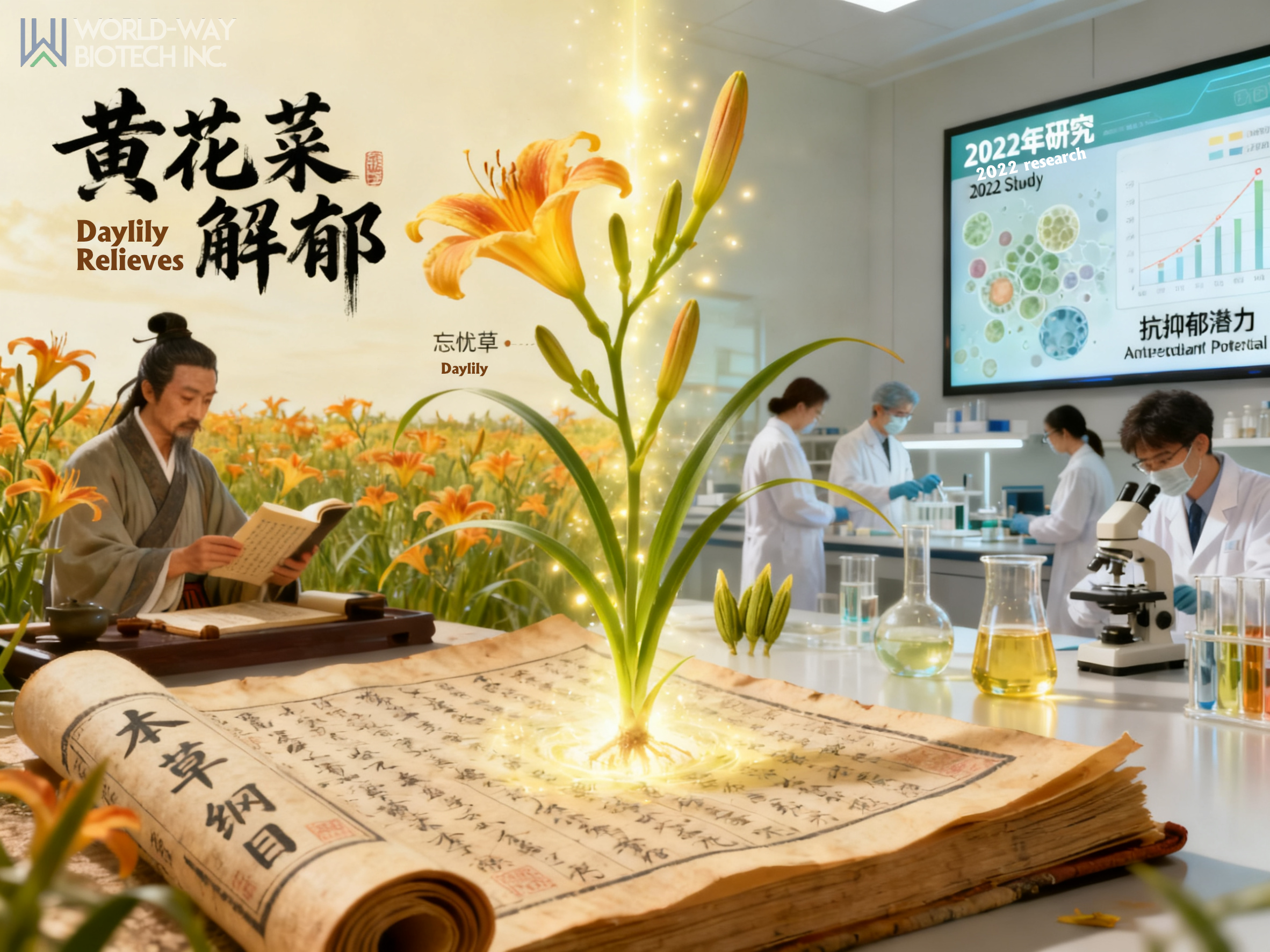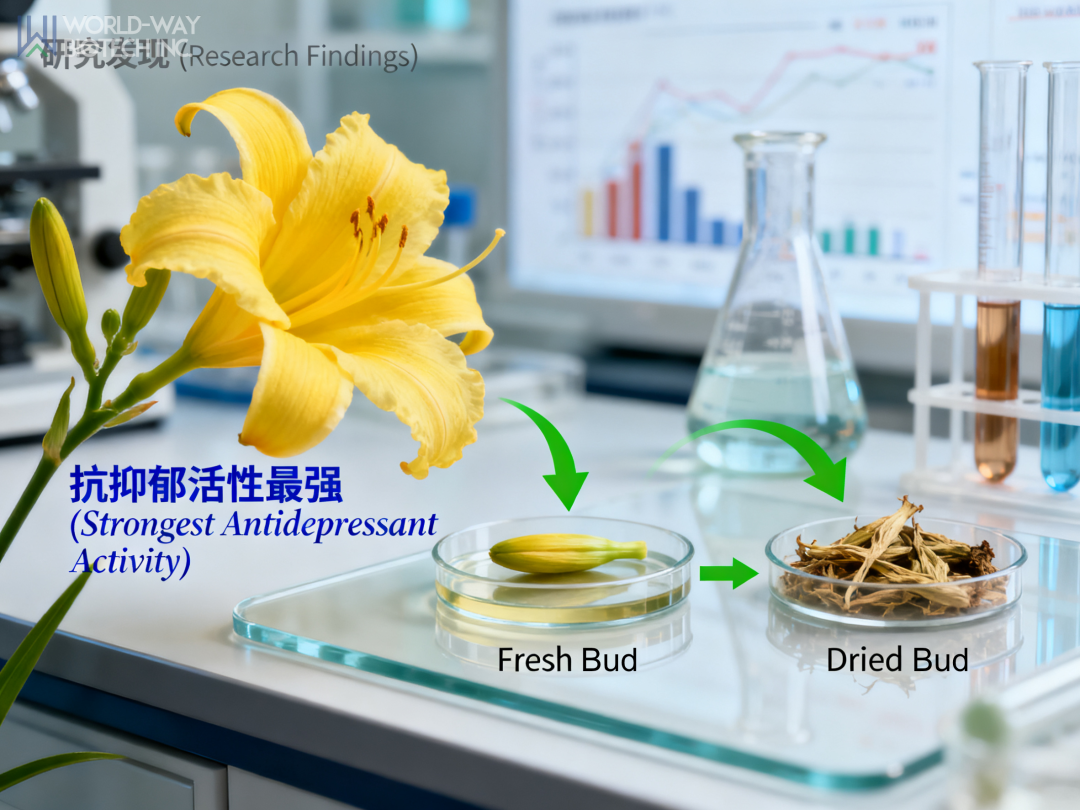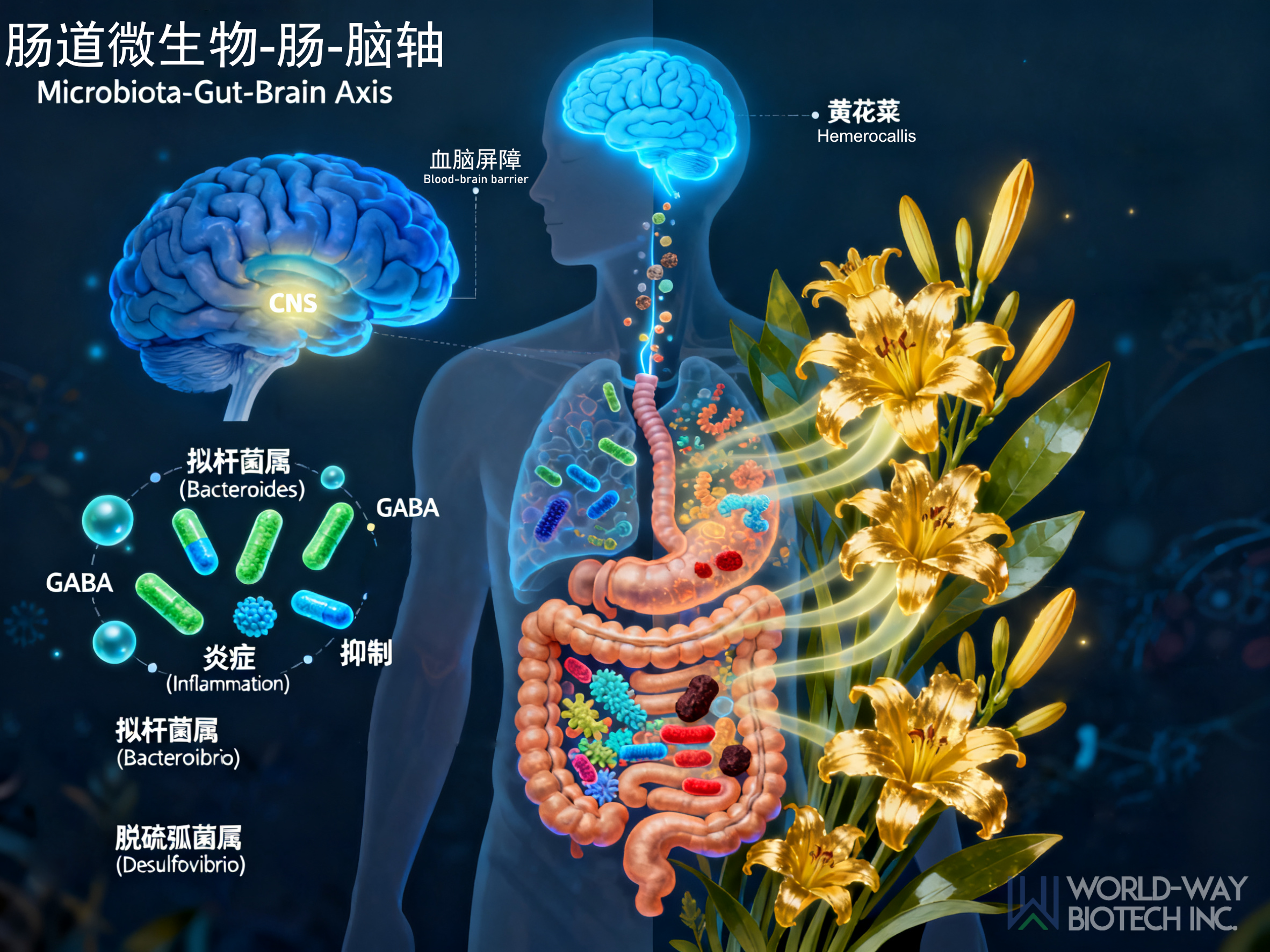close
Choose Your Site
Global
Social Media
Views: 9 Author: Site Editor Publish Time: 2025-10-31 Origin: Site







The daylily is a common delicacy on many family tables, but you may not know that in China, it has a poetic name that has been passed down for thousands of years: "Sorrow-Forgetting Grass." Is this poetic name just a hopeful wish from ancient times, or does it have a scientific basis? A recent study published in the internationally renowned journal Frontiers in Pharmacology has, for the first time, systematically unveiled the scientific secrets behind this ancient name, reaching some surprising conclusions.
The use of daylilies to alleviate depressive moods is not a new discovery. As early as the Ming Dynasty in China, the famous medical text Compendium of Materia Medica recorded that its flower buds could "relieve depression." However, for a long time, this ancient wisdom remained at the level of traditional knowledge.
This 2022 study was the first to use rigorous animal experiments to comprehensively and systematically evaluate the effects of three different parts of the daylily—the flower, fresh buds, and dried buds—using both water and ethanol extraction methods. The results strongly confirmed that the daylily does indeed possess significant antidepressant potential. This marks a moment where ancient Eastern wisdom is being validated by rigorous modern science, giving the legend of the "Sorrow-Forgetting Grass" its first powerful scientific endorsement.

This is perhaps one of the most groundbreaking findings of the study. What we typically consume are the dried or fresh buds of the daylily. However, the research indicates that the part with the strongest antidepressant activity may not be the buds.
Researchers compared extracts from the daylily's "flowers," "fresh buds," and "dried buds." The results clearly showed that the water extract of the daylily flower (HCW) exhibited the most significant antidepressant activity, even outperforming the extracts from the fresh and dried buds that we commonly eat. This suggests that in consuming dried daylilies for the convenience of storage and transport, we may be missing out on the form and part of the plant with the most potent antidepressant effects.
The findings showed that extracts from the daylily flower (both the water extract, HCW, and the ethanol extract, HCE) displayed significant antidepressant activity. Among them, the flower's water extract (HCW) performed the best of all tested extracts.

Since the flower's water extract is the most effective, the next logical question is: what magical "chemical bullet" within this extract is hitting the target?
Using high-tech analysis (HPLC-Q-TOF-MS), the researchers identified 32 major compounds in the most effective extract. Among these, a substance called Rutin was found in the highest concentration. To verify its role, the research team administered Rutin alone to a mouse model of depression. The results confirmed that Rutin itself has significant antidepressant activity. Therefore, Rutin is considered one of the primary active ingredients responsible for the "sorrow-forgetting" effects of the daylily.

How can a plant affect the brain's emotions? The answer may lie in our intestines. In recent years, the "microbiota-gut-brain axis" theory has become a hot topic in life sciences. This theory posits that the health of gut microbiota is closely linked to a person's mood and brain function.
This study is the first to connect the antidepressant effects of the daylily to the gut microbiome. The research found that the effective daylily extract (HCW) could:
Increase the diversity and richness of the gut microbiota.
Regulate the abundance of specific bacteria:
Significantly increase the levels of the beneficial genus *Bacteroides*. This genus produces a key inhibitory neurotransmitter, GABA, which acts as the brain's "natural tranquilizer," helping to relieve anxiety and promote relaxation.
Significantly decrease the levels of the potentially harmful genus *Desulfovibrio*. An overgrowth of this genus is associated with inflammatory responses in the body. This "internal fire" caused by gut imbalance (i.e., chronic inflammation) is increasingly recognized by research as a major physiological basis for depression.
The elegance of the study lies in the discovery that both the daylily flower water extract (HCW) and its core component, Rutin, exert their effects by modulating the gut microbiota. They act like gardeners, "fertilizing" the growth of beneficial bacteria while "weeding out" harmful ones, thereby improving the gut's micro-ecosystem. The metabolites produced by these "well-fed" bacteria may then cross the blood-brain barrier, ultimately regulating the central nervous system and delivering the "sorrow-forgetting" effect from its root cause.

This research reveals four core facts about the daylily: its "sorrow-forgetting" efficacy is not just a legend but is scientifically confirmed; its flower holds potentially greater potency than its bud; Rutin is one of its key active ingredients; and its mechanism of action is closely related to regulating the health of our gut microbiota.
This not only deepens our understanding of the daylily's value but also offers a new perspective: the wisdom of many traditional herbal remedies and food therapies is being analyzed and elevated as never before through modern science. As science continues to unlock the secrets of traditional practices, how many other forgotten "treasures" are quietly waiting to be rediscovered in our kitchens and gardens?
Reference:
Wang, Y., et al. (2022). Antidepressant Activity of Hemerocallis citrina Borani Flower Extracts and Its Underlying Mechanism of Action Based on the Microbiota-Gut-Brain Axis. *Frontiers in Pharmacology*, 13, 967670. https://doi.org/10.3389/fphar.2022.967670
